Luzon Island, the largest and most populous island in the Philippines, is a travel paradise with breathtaking landscapes, vibrant cities, and rich cultural heritage. Whether you’re exploring the historical streets of Manila, hiking in the Cordillera Mountains, or relaxing on pristine beaches, island tourism offers something for every traveller. From bustling urban centres to serene natural escapes, this island provides the perfect mix of adventure and relaxation. If you’ve ever wondered, where is Luzon Island?, this guide will help you discover why it should be on your travel bucket list.
About
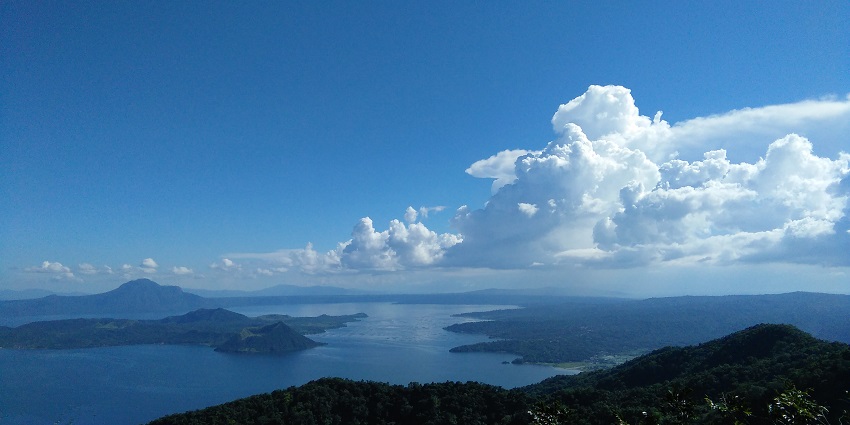
Photo: Arius1998 / Wikimedia Commons
The Island, the largest island in the Philippines, is famous for its rich history, vibrant culture, and stunning natural landscapes. It is home to Manila, the capital city; historical landmarks such as the Rizal Park and Intramuros and natural wonders, such as the Banaue Rice Terraces and Taal Volcano. Its diverse cuisine, shopping districts, and beautiful beaches attract tourists from around the world.
Location
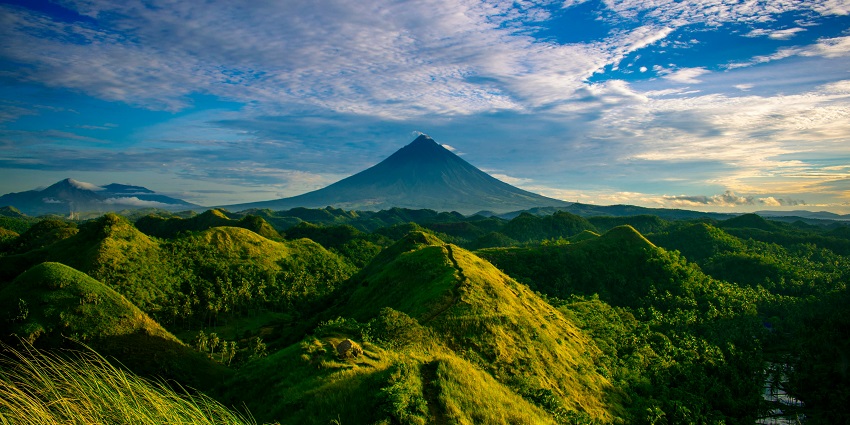
Photo: Archie Binamira / Pexels / Image For Representation Only
The island is situated in the northern part of the Philippines, bordered by the Philippine Sea to the east, the South China Sea to the west, and the Luzon Strait to the north. It serves as the country’s political and economic hub, with Manila as its capital. The island is easily accessible from other parts of the Philippines and neighbouring countries, making it a convenient travel destination. The island’s diverse landscape includes mountains, beaches, volcanoes, and urban centres, offering a wide range of attractions for visitors.
How To Reach
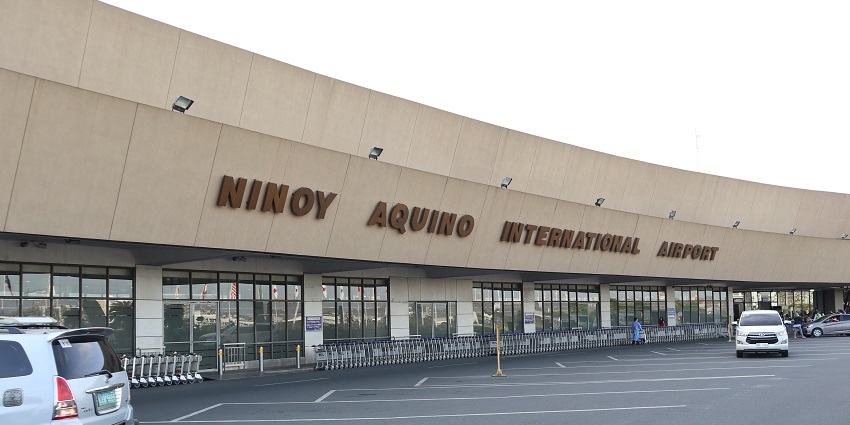
Photo: patrickroque01 / Wikipedia
By Air: The primary gateway to the island is Ninoy Aquino International Airport (NAIA) in Manila. Other international airports include Clark International Airport in Pampanga and Mactan-Cebu International Airport, with domestic connections to Luzon.
By Sea: Luzon Island is accessible via ferries from the Visayas and Mindanao regions. The Batangas Port and Manila Port serve as key entry points for travellers arriving by sea.
By Road: If you are already in the Philippines, buses and private vehicles can take you to various parts of Luzon via the North and South Luzon Expressway, making road travel convenient and accessible.
Places To Visit On Luzon Island
Luzon Island tourism is booming like never before. Here are the 5 places that you must visit on the island when you visit the Philippines.
1. Banaue Rice Terraces
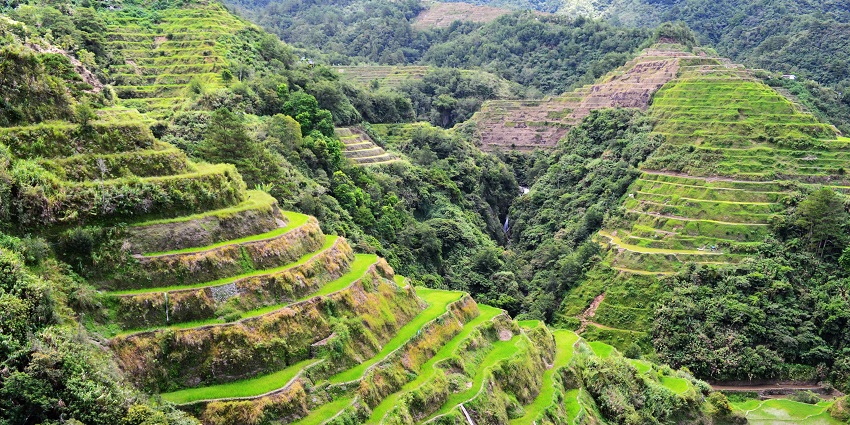
Photo: Edwin Juen Jr. / Wikimedia Commons
Imagine standing before a breathtaking landscape of beautiful green terraces carved into the mountainside, a masterpiece of ancient engineering. These stunning fields, crafted by the Ifugao people over 2,000 years ago, continue to thrive today. Often called the ‘Eighth Wonder of the World,’ they showcase a harmonious blend of culture and nature. While exploring scenic destinations, don’t forget to check out other incredible places to visit on the island for more unforgettable adventures.
Location: Ifugao Province, Northern Luzon
Cost: ₱20-50 / ₹30-₹75
2. Mayon Volcano
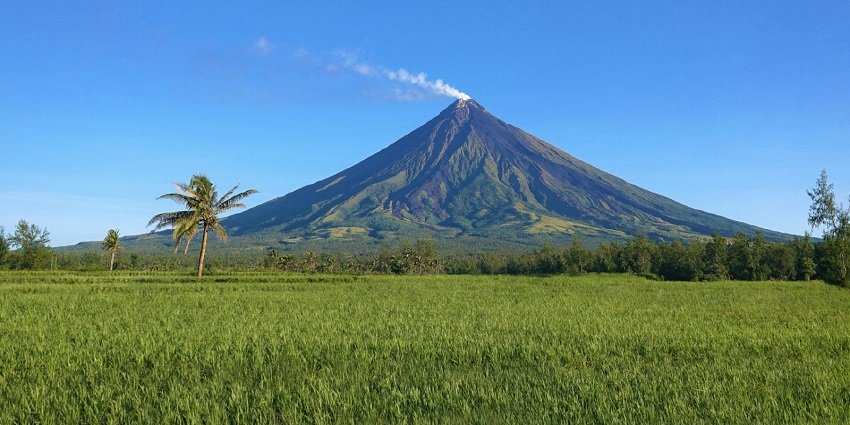
Photo: Marisa Mercado / Wikimedia Commons
One of the most active volcanoes in the Philippines, this natural wonder is renowned for its nearly perfect cone shape. Located in Albay, it has captivated travellers with its stunning beauty and the nearby Mayon National Park. Visitors can enjoy activities such as hiking, biking, and the breathtaking view from nearby towns. Whether you are an adventure seeker or simply a nature lover, it’s a must-see destination!
Location: Albay Province, Bicol Region
Cost: ATV tours start at ₱599 / ₹899
3. Vigan City
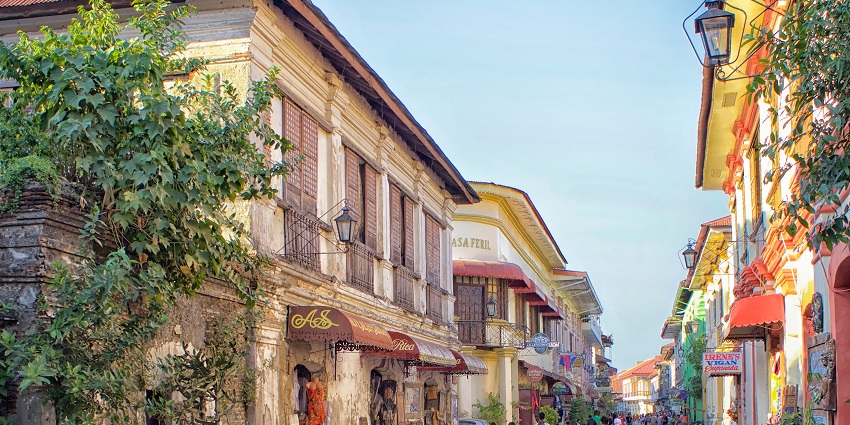
Photo: Ray in Manila / Wikimedia Commons
Nestled in the heart of the Philippines, this UNESCO World Heritage Site offers a delightful mix of history and culture. Cobblestone streets, Spanish-era architecture, and charming local shops invite you to step back in time. With its picturesque sights and vibrant atmosphere, it’s easy to see why travellers love wandering through this quaint city. If you’re ever in the area, don’t miss the chance to experience the magic firsthand!
Location: Ilocos Sur, Northern Luzon
Cost: N/A
4. Mount Pinatubo
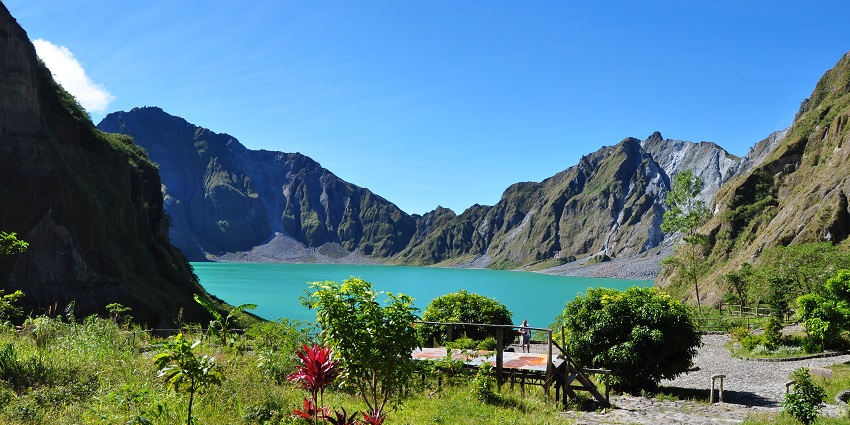
Photo: Sindre Helvik / Wikimedia Commons
Located in the Philippines, this volcano is famous for its dramatic eruption in 1991, one of the largest in recorded history. The eruption had global environmental effects, but today, it draws adventurers from around the world. Visitors can trek through lush landscapes, cross riverbeds, and even reach the crater lake, surrounded by awe-inspiring mountains. It’s a perfect mix of nature’s beauty and a reminder of its powerful forces. Would you dare take the hike?
Location: Zambales, Central Luzon
Cost: Trekking tours start at ₱2,400 / ₹3600
5. Taal Volcano And Lake
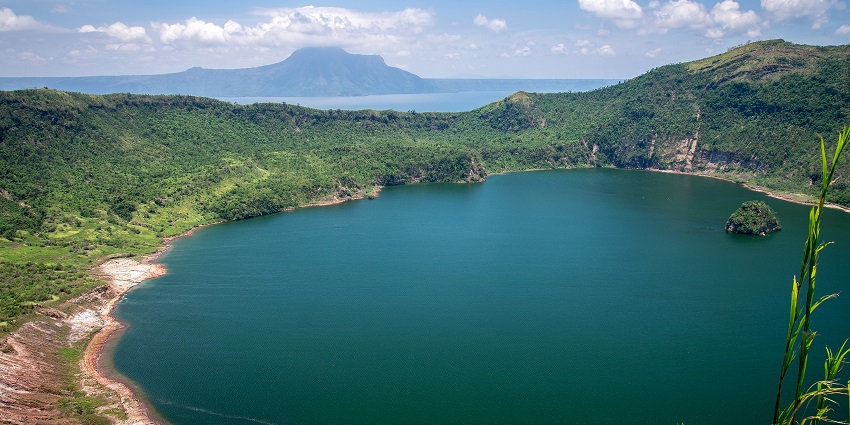
Photo: Kai Lehmann / Wikimedia Commons
Situated in the heart of the Philippines, this stunning volcanic lake offers a captivating blend of nature’s beauty and raw power. Visitors can enjoy a boat ride across its serene waters or take a hike to the crater for breathtaking views. With its dramatic landscape and unique ecosystem, it’s no wonder this destination draws both adventure seekers and nature lovers alike. Have you ever seen a volcano sitting in the middle of a lake?
Location: Batangas, Southern Luzon
Cost: ₱1,500 / ₹2250
Where To Stay
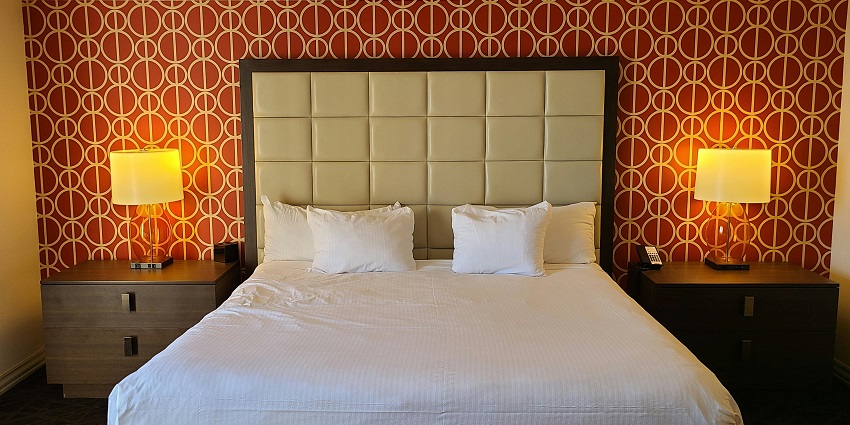
Photo: William Pearson / Pexels / Image For Representation Only
The island has something for everyone when it comes to accommodations, whether you’re seeking luxury, comfort, or budget-friendly options. If you love luxury, stay at The Peninsula Manila, Okada Manila, or Sofitel Philippine Plaza for a plush experience. For mid-range options, try The Picasso Boutique Serviced Residences or The Bellevue Manila. Budget travellers can enjoy Z Hostel in Makati, Banaue Homestay in Ifugao, or The Circle Hostel in Zambales, offering cosy and affordable stays.
Where To Eat
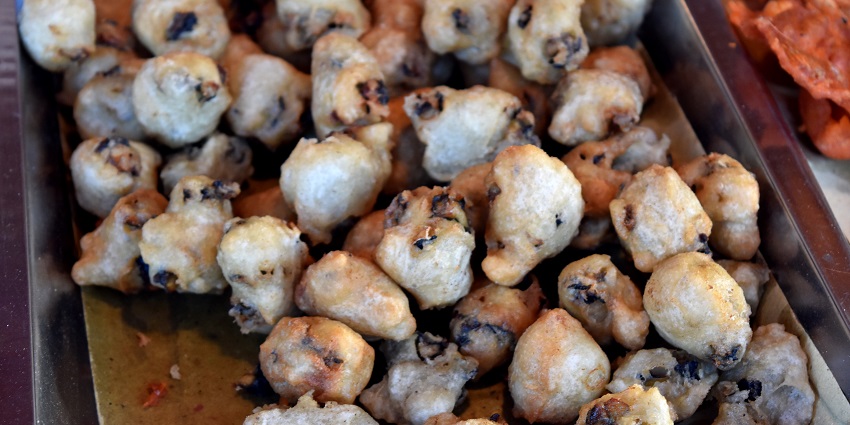
Photo: MarvinBikolano / Wikimedia Commons / Image For Representation Only
The island is a food lover’s paradise, offering a mix of flavours from different regions. In Manila, don’t miss Abe for Kare-Kare and Sinigang. For a taste of Ilocano cuisine, head to Café Leona in Vigan for their iconic longganisa and empanadas. If you’re in Bicol, Small Talk Café in Legazpi is famous for its spicy Bicol Express. For street food, try balut, kwek-kwek, and isaw from local vendors. Other must-try spots include Ristorante Delle Mitre (Manila), Barbecue Boss (Pangasinan), Tahanan ni Aling Meding (Quezon), and Café Yagam (Baguio).
Best Time To Visit
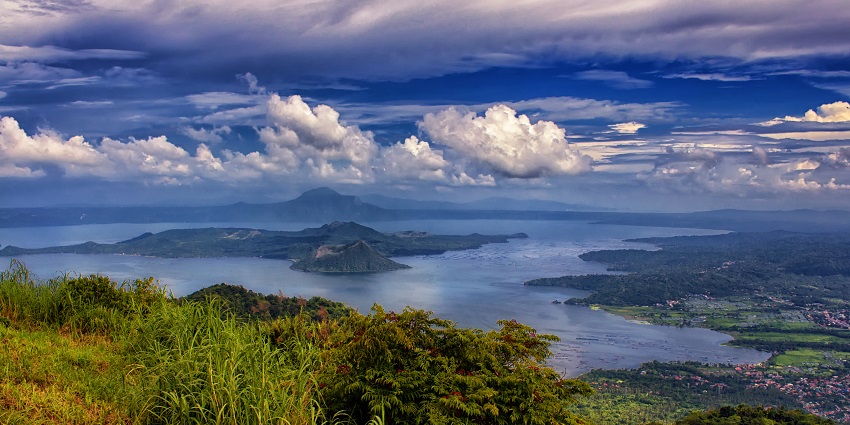
Photo: Ray in Manila / Wikimedia Commons / Image For Representation Only
The best time to visit the island is during the dry season, from November to April. During these months, the weather is warm and sunny, making it ideal for outdoor activities such as hiking, sightseeing, and exploring the beautiful beaches. If you’re planning to avoid the rain and enjoy the best of the island weather, these months offer pleasant temperatures and clear skies, ensuring a more enjoyable trip.
Other Factors To Consider

Photo: ian dooley / Unsplash / Image For Representation Only
Tips For Travellers
- Always check the island map before planning your trip to navigate easily.
- Pack light clothing for the warm weather, but bring a raincoat if travelling during the wet season.
- If hiking in areas such as Banaue or Mayon, wear sturdy shoes and bring enough water.
- Be mindful of local customs, especially in historical and religious sites.
- Book accommodations and tours in advance during peak seasons.
Luzon Island is a beautiful destination that combines adventure, history, and stunning landscapes, making it a must-visit place in the Philippines. Whether you are hiking through green mountains, exploring colonial-era towns, or enjoying the vibrant city life, Luzon Island tourism offers an unforgettable experience to all its visitors. Plan a trip with TripXL and explore the awe-inspiring wonders of Luzon Island today.
Cover Photo: Anna ART / Shutterstock


 WhatsApp
WhatsApp
 Twitter
Twitter









